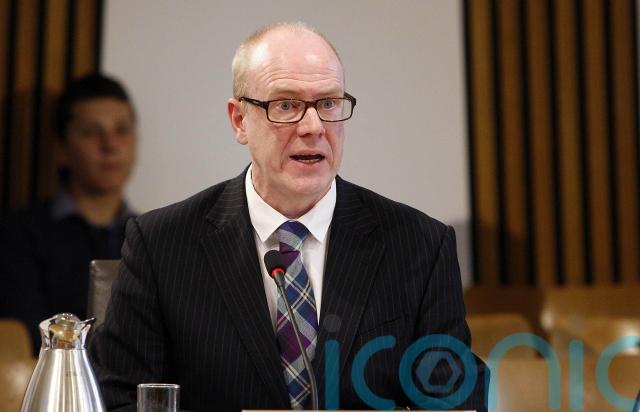
The number of children and young people waiting a year or more for specialist mental health care fell to 1,570 at the end of December – the lowest total recorded in 2021.
The number waiting 53 weeks or more for an appointment with Child and Adolescent Mental Health Services (CAMHS) reached 2,244 at the end of November – the highest monthly total recorded during last year – before dropping the following month.
With those providing services for children highlighting a “lack of resources and lack of staff”, concerns were raised that it is “becoming an impossible situation to manage”.
The Scottish Children’s Services Coalition (SCSC) insisted a “radical transformation” of services was needed as data from Public Health Scotland showed that proportion of youngsters being seen within the 18-week target time fell during the final quarter of 2021.
Over the period October to December, seven out of 10 (70.3%) of children and young people were seen by CAMHS within 18 weeks – down from 78.6% in the previous quarter, and below the 73.1% recorded in the last three months of 2020.
The Scottish Government target states that 90% of children and young people should start treatment within 18 weeks of being referred to CAMHS for help.
But figures for the last quarter of 2021 showed that in NHS Dumfries and Galloway fewer than half (47.4%) were seen within 18 weeks.
This compares to the 95.2% who were seen within the target time in NHS Grampian.
Of the 10,452 patients who were waiting for a CAMHS appointment as of December 31, just over half (54%) had been on the list for 18 weeks or less.
A fifth (19.8%) of patients had been waiting 19 to 35 weeks, with 11.2% waiting for 36 to 52 weeks, as well as the 15% waiting 53 weeks or more.
A total of 4,544 children and young people started treatment with CAMHS in the last three months of 2021 – an increase of 19.8% on the previous quarter and 11.1% higher than the total from October to December 2020.
The figures also showed a 27% increase in the number of children and young people being referred for help – with the total increasing from 7,882 in the third quarter of 2021 to 10,021 in the last three months of the year.
An SCSC spokesman said: “For some time now, we have raised concerns over a potential lost generation of vulnerable children and young people, whose mental health is being impacted even further by the Covid-19 pandemic.
“Too many of our young people are waiting too long for the treatment they need and it is more important than ever that children can access the support required, irrespective of where they live.
“While we welcome the attention that the Scottish Government has given to date on this vital issue, a lack of resources and lack of staff mean it’s becoming an impossible situation to manage.
“There must be a radical transformation of our mental health services, investing in specialist services and with a focus on preventing such problems arising in the first place and intervening early.”
The spokesman added: “This is a crisis we can overcome, but as the country comes to terms with the biggest hit to its mental health in generations, it will require a similar energy and commitment to that demonstrated for Covid-19 if we are to achieve this and prevent many young people giving up on their futures.”

Mental health minister Kevin Stewart stressed that a “record number of children and young people” had started receiving CAMHS treatment in the last three months 2021.
And he stated: “We have specifically invested £4.25 million this year to help boards tackle backlogs in CAMHS care and it is encouraging to see they have targeted this resource to increase activity to record levels this last quarter.
“This has been made possible by the hard work of NHS staff and sustained growth in the CAMHS workforce. Under this Government (since 2007) CAMHS staffing has increased by 83.4% (+500.1 Whole time equivalent) and we continue to create posts.
“Long waits for treatment are unacceptable and we remain committed to meet the standard that 90% of patients begin treatment within 18 weeks of referral.”
Subscribe or register today to discover more from DonegalLive.ie
Buy the e-paper of the Donegal Democrat, Donegal People's Press, Donegal Post and Inish Times here for instant access to Donegal's premier news titles.
Keep up with the latest news from Donegal with our daily newsletter featuring the most important stories of the day delivered to your inbox every evening at 5pm.